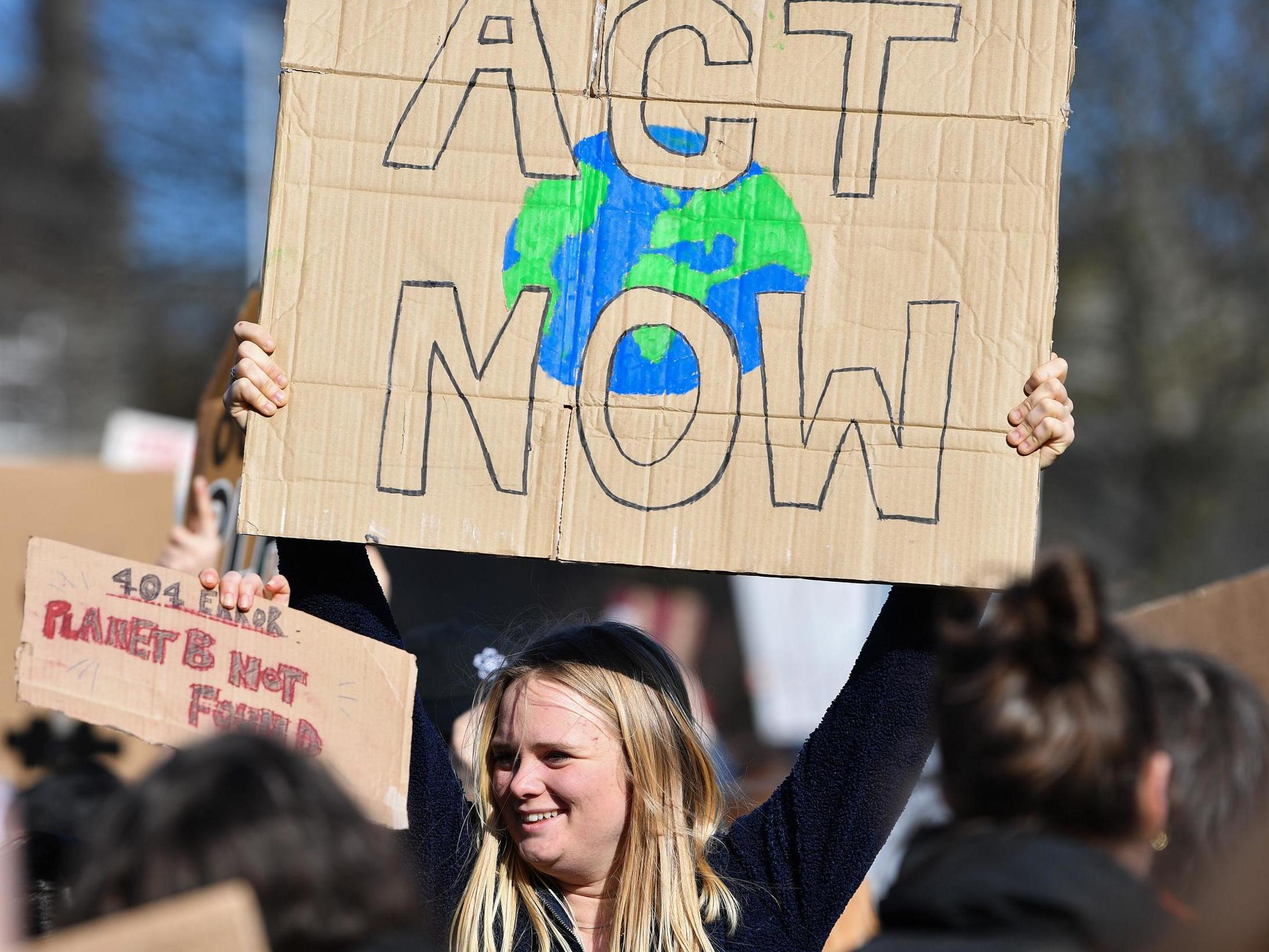What is a 'climate emergency' - and what are MPs voting on today?
'It is a great first step because it sends a clear signal that we are in a crisis and that the ongoing climate and ecological crises must be our first priority,' says activist Greta Thunberg

Your support helps us to tell the story
From reproductive rights to climate change to Big Tech, The Independent is on the ground when the story is developing. Whether it's investigating the financials of Elon Musk's pro-Trump PAC or producing our latest documentary, 'The A Word', which shines a light on the American women fighting for reproductive rights, we know how important it is to parse out the facts from the messaging.
At such a critical moment in US history, we need reporters on the ground. Your donation allows us to keep sending journalists to speak to both sides of the story.
The Independent is trusted by Americans across the entire political spectrum. And unlike many other quality news outlets, we choose not to lock Americans out of our reporting and analysis with paywalls. We believe quality journalism should be available to everyone, paid for by those who can afford it.
Your support makes all the difference.Theresa May must put the country and politicians on a "war footing" to avert the disasters of climate change, the former Labour leader Ed Miliband has declared as MP's gear up to vote on whether to declare a "climate emergency".
His remarks come after the Extinction Rebellion - the international movement that says we "are in a life or death situation of our own making" - brought areas of central London to a standstill in recent weeks.
What is a "climate emergency?"
There appears to be no single definition of a "climate emergency", but it is generally agreed among those calling for the motion that climate change represents the greatest threat to all walks of life, including national security, the economy, social well-being, and the natural environment.
While symbolic such a declaration by an authority or government would recognise the life-threatening risks that will come with inactivity over climate change.
At the end of 2018, the United Nations secretary general António Guterres said climate change "is the defining issue of our time", and said the planet faces a "direct existential threat".
"If we do not change course by 2020, we risk missing the point where we can avoid runaway climate change, with disastrous consequences for people and all the natural systems that sustain us," he warned.
His predecessor Ban Ki-Moon warned a decade earlier: "This is an emergency and for emergency situations we need emergency action."
Who is putting forward the "climate emergency" motion in Parliament?
Proposed by the Labour Party, a motion on Wednesday will ask MPs to "act with commensurate urgency", and if passed the UK parliament will become the first in the world to declare a "environment and climate emergency."
Following the finding of the intergovernmental panel on climate change, it adds: "To avoid more than 1,.5°C of warming, global emissions would need to fall by about 45 percent from 2010 levels by 2030, reaching ‘net zero’ around 2050."
It also recognises the "devastating impact volatile and extreme weather will have on UK food production, water availability, public health, flooding and wildfire damage" and calls on the government to set more ambitious targets.
Will it succeed?
To pass it is likely to require the support of Conservative MPs, who will be under immense pressure to back the demand. But - as a general rule - Tory MPs do not usually vote in favour in motions put forward by Labour during opposition day debates in the House of Commons.
Though many campaigners and activists will be expecting MPs of all colours to be putting aside tribal politics and declare a "climate emergency". If it is voted down, expect an almighty row to follow.
What happens if MPs pass the motion?
Labour believes by declaring a "climate emergency" a wave of action could be set off in parliaments around the globe and recognise the magnitude of the threat faced by climate change.
The motion also calls on the government to alter its climate change change targets and achieve net zero emissions before 2050.
But declaring an "emergency" is just the first step - the recognition that urgent action is needed. It will be a symbolic move if passed by the UK parliament on Wednesday, but campaigners believe it is the first major step towards ushering in urgent and drastic action.
The 16-year-old climate change activist Greta Thunberg said of the motion: "It is a great first step because it sends a clear signal that we are in a crisis and that the ongoing climate and ecological crises must be our first priority.
"We cannot solve an emergency without treating it like an emergency."
Join our commenting forum
Join thought-provoking conversations, follow other Independent readers and see their replies
Comments